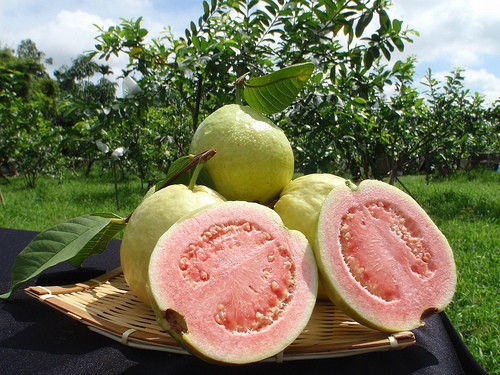As relations between the U.S. and Taiwan continue to warm, the U.S. Department of Agriculture on Thursday (Oct. 17) announced that it has authorized the import of guavas grown in Taiwan.
On Dec. 14, 2018, the department published the results of a pest risk assessment (PRA) and a risk management document (RMD) for review and comments on the Federal Register for 60 days, ending on Feb. 12, 2019. On Thursday, the department published a notice in the Federal Register stating that it has decided to authorize the importation of "fresh guava fruit from Taiwan."
This decision makes Taiwan only the second country in the world allowed to export guavas to the U.S. market. Taiwan's Council of Agriculture (COA) hopes to be able to send the first air shipment to the U.S. by the end of this year, reported CNA.
Bureau of Animal and Plant Health Inspection and Quarantine Deputy Director-General Chou Hui-chuan (鄒慧娟) told CNA that when the COA led a Taiwanese trade delegation to the U.S. in September of last year to negotiate and sign a biennial agricultural procurement agreement, it learned about the Federal Register announcement process. Chou said that Taiwan's participation in the process has borne fruit with the successful approval of the import of Taiwanese guavas this year.
Chou said that the high quality and affordable price of the country's guavas make them competitive and that they should have substantial market potential in the U.S. Currently, Mexico, the theoretical place of origin of the fruit, is the only country that has access to the U.S. guava market.
According to data from the COA's Agriculture and Food Agency, over 50 percent of Taiwan's exported guavas are sold in Canada. Currently, overseas compatriots are the largest group of consumers, and export volume has increased in recent years.
In 2018, Taiwan exported 3,034.2 metric tons of guavas, with Canada accounting for 1,572.5 metric tons, or about 52 percent of exports, according to statistics from the COA website. The second-largest export market was China at 707.6 metric tons, followed by Hong Kong at 580.9 metric tons and Singapore at 135.6 metric tons.








